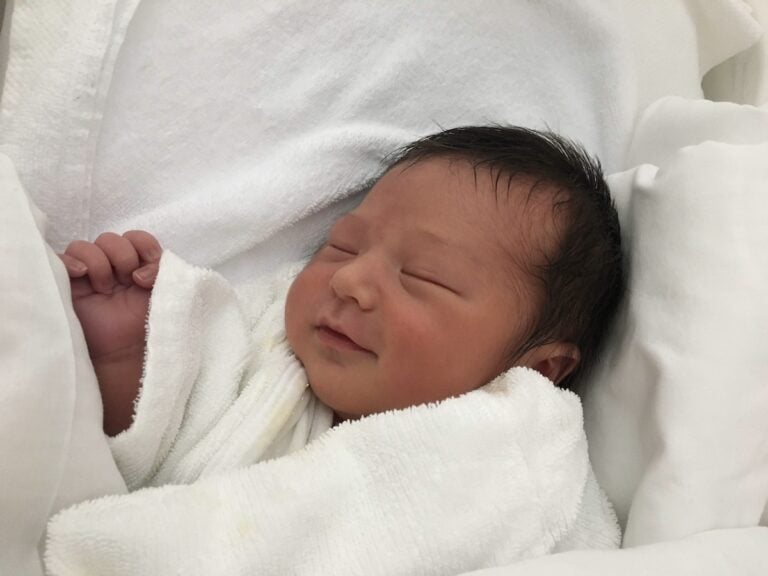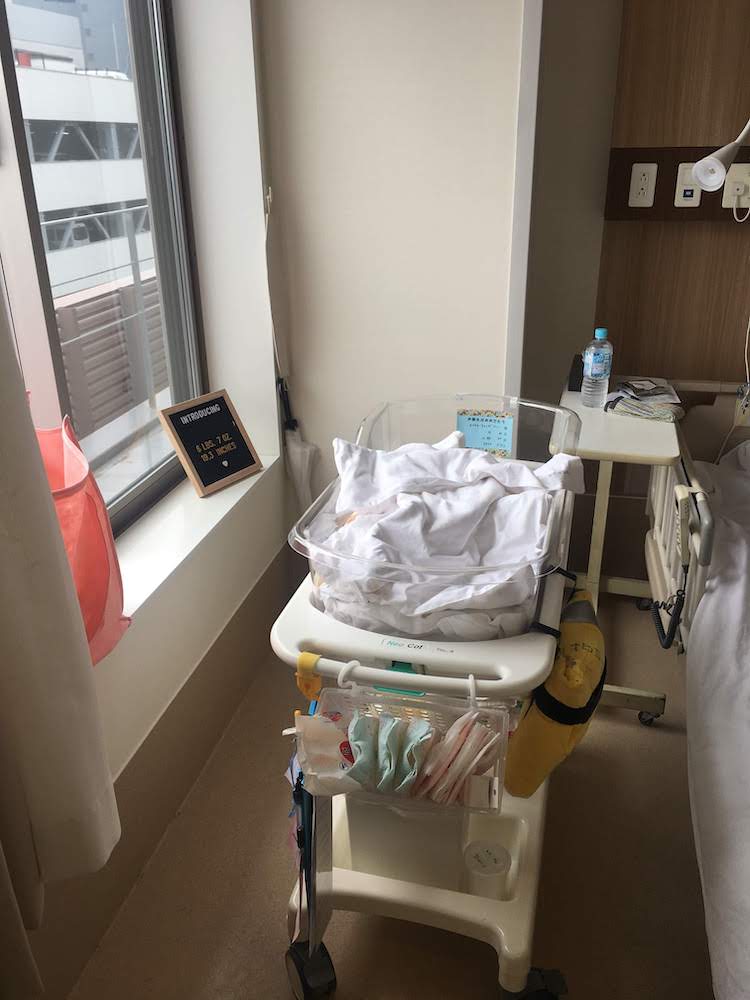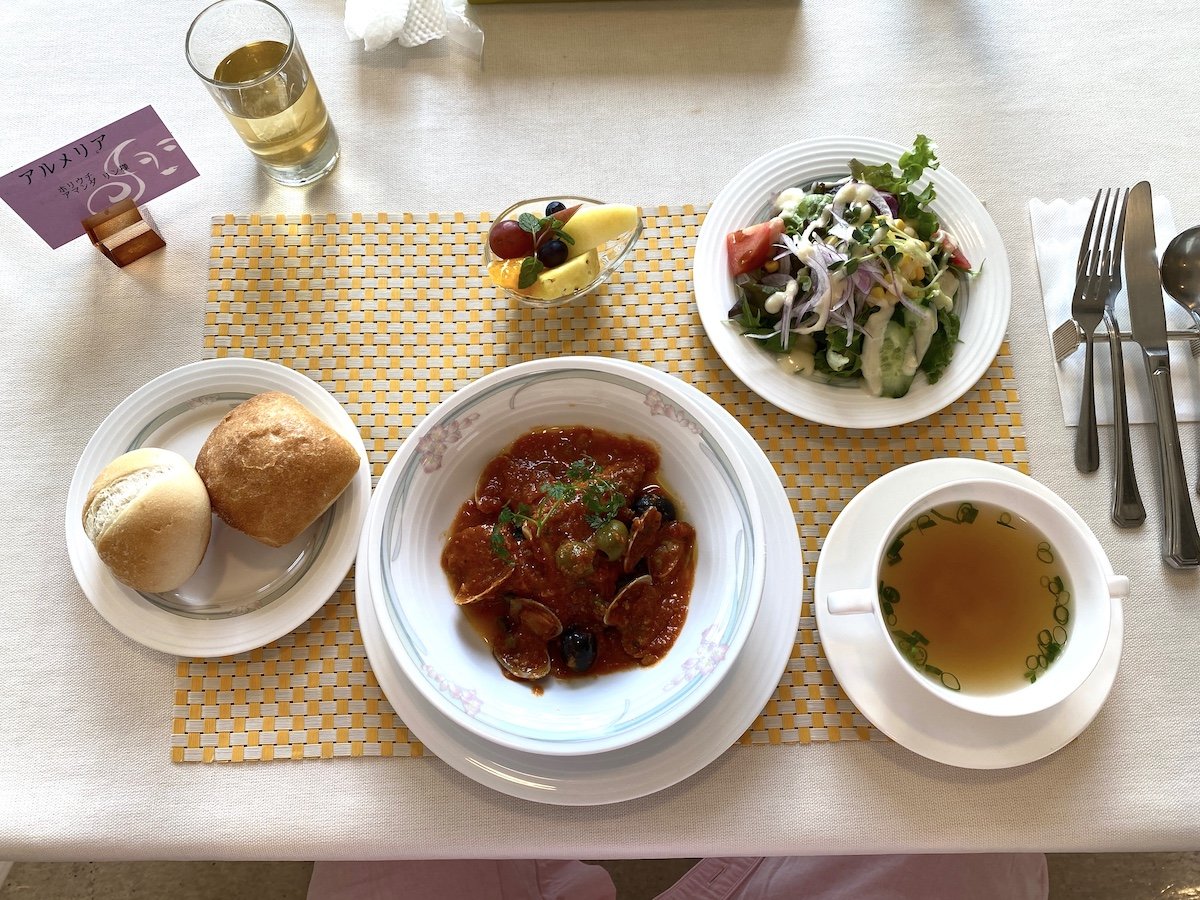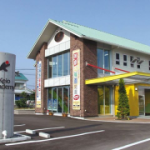
If you’re preparing to have a baby in Japan, you’re probably feeling a wild mix of emotions right now. If you’re feeling anxious or unsure, you’re not alone. Every new mom feels this way, especially when you’re in a foreign country like Japan.
In this article, I’ll share my experience having a baby in Japan (actually, 2 babies!). Along the way, I hope to calm your fears and arm you with some knowledge to help you have the best possible birth experience in Japan.
My Birth Stories
My two birth stories couldn’t have been more different.
I had my first baby in 2019. I was induced, but didn’t use an epidural or any pain medicine. I had him at a large general hospital in Tokyo. (And this was before the pandemic, so there were no restrictions.)
I had my second baby in early 2021. I was induced again. But this time, I had an epidural from beginning to end. This baby, another boy, was born in a private birthing clinic. And this was in the middle of the pandemic, so there were plenty of restrictions to deal with. The birth was easy, but the baby had to go to the NICU for a couple of weeks (luckily, he ended up fine!).
I’ll share my experience with both babies, starting with pregnancy tests and ending with post-partum care.
Finding Out I Was Pregnant
First baby:
I found out I was pregnant with an at-home pregnancy test.
Pregnancy tests in Japan don’t work before your missed period, so you need to wait 7 days after your missed period to use one. Those 7 days felt like forever!
At 6 weeks, I went to a nearby OB-GYN to confirm the heartbeat. We couldn’t hear anything. The doctor looked at the ultrasound and said, “Either it’s too early, or the baby isn’t doing well.” She said this without much emotion.
(It depends on the doctor, but some of my friends have gotten pretty bad news delivered without much emotional support. That doesn’t mean every doctor will do this. But it’s helpful to be emotionally prepared for this if you’re going to a Japanese OB-GYN.)
Luckily, the baby was just fine, and we heard the heartbeat at 8 weeks.
Second baby:
Same thing, but this time I waited a little longer to confirm my pregnancy at the hospital just to avoid the stress from the first time.
Choosing a Hospital
First Baby:
Call me naïve, but I wanted an unmedicated birth for my first baby just to see what it was like. Every hospital offers unmedicated births, so I just looked for a place that felt clean and safe.
I talked to a couple of friends and ultimately decided to go with a bigger general hospital near our apartment. I wanted to try breastfeeding, and they seemed to give a lot of support.
I also chose it because it had an all-female staff.
I liked that it had other specialists in the building in case something came up during birth. I wasn’t so happy that there were no private rooms, which meant I would be sharing my room with 3 other moms.
Second Baby:
After feeling every contraction for my first baby, I decided to get an epidural for the second one.
This narrowed my options because general hospitals don’t typically offer epidurals for birth. (It’s still rare for Japanese women to get an epidural.)
I searched online for birthing clinics that offered epidurals and chose mine based on reviews and photos from the website.
This one also had an all-female staff and a cozy, at-home feel that I loved. It also had private rooms and other amenities like a congratulatory steak dinner for new moms.
For this birth, I knew we wouldn’t have access to on-site emergency services if something went wrong, which was a risk. But I was willing to risk it so I could have an epidural.

What to Prepare When Having a Baby in Japan
There’s so much to prepare and learn before having a baby! Here was my experience:
- Counting 10 months instead of 9: I learned that Japanese moms count 10 months of pregnancy (40 weeks divided by 4 weeks in a month = 10), while Americans (like me) count only 9. So I needed to learn how to count the Japanese way.
- Tons of ultrasounds: I was pleasantly surprised that I could see the baby via ultrasound every time I went in for a checkup. It was nice to see the baby every time. For my second baby, they even had 3D ultrasound videos that I could download and send to family.
- Finding out the gender: My first hospital had a strict rule that they would only tell the gender at 23 weeks. So we didn’t find out the gender for 6 months. With my second baby, we found out around 19 weeks. It’s rare to do blood tests to find out the gender early.
- Gaining weight: I gained more than 10kg in my first pregnancy, and my doctors weren’t very happy about it. They told me to slow down or else I might not be able to have the baby vaginally. However, the baby came out fine and wasn’t overweight. The private birthing clinic was less strict about this.
- New parent classes: For our first baby, my husband and I took local new mom and dad classes run by the government. I found them really helpful, and that was the only place my husband could learn about pregnancy and birth. Otherwise, I was able to take lessons through the hospital and during my post-partum stay. Both of my hospitals required me to take lessons before I gave birth there.
- Getting nutrition advice: With my first baby, I was told, “Eat what you like, but don’t eat prosciutto.” (It can cause infections and complications.) Both hospitals had nutrition classes that told me how many calories and nutrients I should be getting. And both told me to take prenatal vitamins for the first trimester. I even ate sushi a few times while pregnant (but please, do this at your own risk!).
- Buying stuff: I went to Akachan Honpo and picked up their new baby shopping lists to figure out what to buy. I also asked friends, of course, and got some great hand-me-downs from other moms. Akachan Honpo gives you some good coupons if you register your baby’s due date and create a point card.
- Maternity taxis: I signed up for a maternity taxi service (はぴママサポートタクシー or Happy Mama Support Taxi) through the Keio Taxi company. If you create an account and register your due date, you can call them to pick you up for appointments or even to take you to the hospital during labor. This helped because I didn’t have a license and needed a way to get to the hospital in an emergency.
- Epidural prep: For my second baby, I had to take an epidural class to be able to get one. I also learned I would have to pay 100,000 yen out of pocket for the service.
- COVID: Because of COVID, my husband and first-born son couldn’t join me for check-ups, which was a bummer. I was also told that he probably wouldn’t be able to attend the birth. Luckily, near my due date, they started allowing partners to come in for the last 15 minutes. (We also got COVID during my third trimester, but that’s another story for another day.)
Giving Birth
First Baby:
At my 38-week checkup, my doctor noticed that I was leaking amniotic fluid. “You need to go home right away,” she told me, “Get your bags for the hospital, and then come right back.” I was already 3 cm dilated, which was a good start.
I was shocked—I hadn’t felt anything. I called my husband to tell him the news, then rushed home, grabbed my bags, and called the maternity taxi service to take me back to the hospital. That day and night, I stayed in a hospital bed, and nurses kept asking me if I felt any contractions. (I didn’t.)
I was wearing a hospital gown, maternity underwear that sticks shut with velcro, and compression socks that they require every mom to wear until birth is over. Unfortunately, the hospital gown was a little too small, so I remember struggling to keep it shut.
On the second day, they induced labor with Pitocin. We started at 9 am. I started to feel cramps and then more painful contractions, but I only progressed 1 or 2 centimeters the whole day. At 5 o’clock, the Pitocin ran out, and they told me to rest for the night. (I expected to just keep inducing labor until the baby came out, so I was surprised by this.)
The third day was more painful. Still, I barely progressed, and I was asked to rest for another night.
The whole time, I could hear other women giving birth in other rooms. I started feeling bad, like I was failing at giving birth somehow. As moms, we all feel inadequate sometimes, and this was one of those times for me.
Luckily, labor started that night, though it was still light. I stayed in the contraction room for the night.
On the fourth day, they induced me one more time. This time, it was a LOT more painful, and my baby was born in 3 hours. (I think I pushed for 4 or 5 contractions in total.)
The midwives whisked my son away to clean him up and do initial tests, then brought him back to us. After that, my husband and I got 2 hours of bonding time with our son before going back to my room.
Second Baby:
My second baby’s birth was a scheduled induction. Epidurals aren’t available 24-7, so if you want an epidural in Japan, you’re better off scheduling it on a weekday.
That morning at the hospital, I put on a hospital gown (and those itchy compression socks again) and went into the operating room to get an epidural. It was nice to have it in before the induction started. The anesthesiologist was kind and attentive, and I felt well cared for.
Even though I couldn’t feel anything, labor progressed pretty quickly. They broke my water in the evening and wheeled me into the delivery room because the baby was on its way FAST. My husband tripped over his shoes, trying to pull them off so he could make it to the room in time.
As I held my new baby in my arms, I could tell his breathing was a little bit weird. Sure enough, he had some fluid lingering in his lungs. They monitored him overnight, had a specialist come in the next day, and then he was taken to a large university hospital to be admitted into the NICU.
We are grateful that it wasn’t a serious issue, and he came out 2 weeks later, happy and healthy!
Filming the birth: Neither of my hospitals allowed any cameras or recording equipment in the room during birth. I suppose you could ask them to make an exception, but it was a pretty hard rule. I’m sure there are facilities that allow you to do this, but mine did not.

Support and Care After Birth
First Baby:
I learned that after having a baby in Japan, you’re required to stay in the hospital for 5 or more days. It sounds like a long time, but it was actually really helpful to me as a new mom.
My hospital was very pro-breastfeeding. So they had breastfeeding specialists in the ward at all times, and we could go into the breastfeeding room at all hours and get help whenever we needed. To be honest, it was painful, difficult, and tiring to stay in a 4-person room and try to breastfeed all night long.
I eventually got the hang of breastfeeding, but I never got any sleep. Between having visitors in our room all day and my baby waking up all night, I felt like a zombie after day two. (I had the option to give my baby to the midwives for a while to get some sleep, but I didn’t do it. I should have!)
The food was good, and the nurses were kind, but I was ready to come home.
At the same time, I felt very safe. My baby was hooked up to a monitor for the first couple of nights. I had around-the-clock support and midwives teaching me how to feed, dress, and bathe my baby. And they made sure I was healing and had no blood clots or other risks.
Second Baby:
My private clinic also required a 5-day stay after birth, but since my baby was in a different hospital, I was there alone. In the end, I could leave a couple of days early.
This hospital preferred to watch the babies for the first couple of nights so the new mothers could sleep. But you could also request to keep the baby with you the entire time.
They also had an agreement with a formula company who offered us demonstrations and free formula.
This clinic had amazing meals, two scheduled massages, daily tea and cake sets delivered to my room, and other great amenities, but I missed my baby so much it was hard to enjoy it fully.
Besides the obvious downside of being alone for most of my stay, I really enjoyed this clinic and the amazing staff, and I’m planning to go back for any future babies I might have.
Cost of Childbirth in Japan
So, how much does it cost to give birth in Japan?
On average, you can expect to pay between 500,000 and 600,000 yen (roughly $3,000 to $4000 USD) for a single birth. However, the government provides a subsidy worth 420,000 yen ($2800 USD), which will cover most of the cost.
If you want an epidural, you will usually need to pay another 100,000 yen ($600 USD) out of pocket. Getting induced, staying at the hospital for extra days, getting a C-section, or staying in fancier birthing clinics will set you back even further.
Here’s what I paid for each of my kids:
First baby:
To recap, I gave birth at a general hospital and had no epidural, but did have a longer stay and 3 rounds of Pitocin.
- Hospital Admission Fee: ¥160,000
- Birthing Fee: ¥265,000
- New Baby Care: ¥56,000
- Tests and Medicine: ¥40,205
- Treatment Fee: ¥21,150
- Obstetric Compensation System for Cerebral Palsy (covers fees in case the baby develops cerebral palsy—I didn’t really understand what this was when I signed up for it): ¥16,000
- Other: ¥22,713
- Total: ¥581,068
- Covered by Subsidy: -¥420,000
- Total Cost: ¥161,068
Second baby:
I had this baby at a private birthing clinic with an epidural (which was an extra ¥100,000), but I had a shorter stay and my baby was almost never there as he went to the NICU right away. (The NICU stay was completely covered by insurance, by the way.)
- Hospital Admission Fee: ¥99,000
- Birthing Fee: ¥500,000
- New Baby Care: ¥31,000
- Medicine: ¥100
- Injections: ¥610
- Tests: ¥1140
- Other: ¥30,800
- Documents: ¥5,300
- Money Back (I made a deposit for an epidural service): -¥1,000
- Total: ¥666,950
- Covered by Subsidy: -¥420,000
- Total Cost: ¥246,950
Summary
There’s so much more I could say on this subject, but I hope this article has given you some ideas and prepared you a little bit for giving birth in Japan. More than anything, I hope you know that you’re not alone in all the feelings you may be having right now.
If you have any questions for me, leave them in the comments—I’d love to answer them for you! Want to read more? Check out this article on what to do when you find out you’re pregnant in Japan.
Author: Amanda Horiuchi















